The Internal Arena: The Need to Respond to Domestic Challenges
Meir Elran, Ariel Heimann, Mora Deitch, Mohammed S. Wattad, Ephraim Lavie, Esteban Klor, Ofer Shelah, Pnina Sharvit Baruch, Jony Essa, and Tomer Fadlon
The Internal Arena: The Need to Respond to Domestic Challenges
Summary chart
Current Israeli Strategy
Could change with the new government, especially regarding the essentials of the democratic regime, checks and balances, and ways to enhance internal security
Israel’s Strategic Gap
Insufficient systemic treatment of various domestic challenges, such as the need to advance the Arab community, improve personal security, and increase home front preparedness for man-made and natural emergencies
Recommended Policy
- Substantive democracy should be secured, with tighter balance between the executive, legislative, and judicial branches, by ensuring a robust standing of the judicial branch, with necessary reforms
- Quantitative and qualitative empowerment of the law enforcement bodies, and primarily the national police
- Systemic strengthening of components of national resilience (enhancing social solidarity, narrowing socioeconomic gaps, and restoring public trust in government institutions)
- Better preparedness needed for civilian man-made and natural emergencies
Recommended Strategy
Maintain substantive democracy as the needed basic framework for improved relations between citizens, government, and the state, through governmental and public active involvement to reduce social divisions and rising violence
Recommended Action
Maintain substantive democracy, while strengthening the balance of power between the branches of government · Formulate and implement a five-year plan for strengthening all aspects of national resilience · Integrated policy to advance all parts of the Arab communities · Multi-year process to improve Israel Police capabilities · Increase civilian preparedness for all types of military emergencies on the home front and preparedness for an eventual earthquake
General
Israel’s heterogeneous society, marked by deep rifts, has known incitement and hostility among its sectors. This phenomenon is not new, but it seems to have intensified in recent years and assumed more violent expression. The trend is influenced by social media and likewise accelerates against the backdrop of the ongoing political crisis, which serves both as cause and effect that aggravate the divide. The crisis fuels the radicalization of the discourse and the erosion of public confidence in the state’s institutions. The result: direct harm to societal resilience, which is grounded in cohesion, social trust, and just and effective governance. Damaging societal resilience means harming national security, given internal and external crises that necessitate coping skills so as to ensure functional continuity and quick recovery. According to an INSS survey of December 2022, 64 percent of Israeli respondents are more concerned about internal social tensions, compared to only 26 percent who are more concerned about external security threats.
Political Instability and the Threat to Democracy
After five elections over three and a half years, the elections to the 25th Knesset saw a victory by the right, which, as a distinct political bloc, earned a relatively solid parliamentary majority. This result invites expectations that a stable government will serve its course for a full term.
Yet while this ostensibly ends the ongoing political crisis, some of the damaging effects continue. Contrary to what might have been expected, the five elections did not revolve around critical issues to be decided, from political and military affairs to economic and societal issues. The prominent focus was on the role and status of the judicial system, which has been defined among the two rival camps as an essential reflection of their respective political identity. The messages of the conflicting parties and their modes of dissemination have deepened the schism between the rival groups in society.
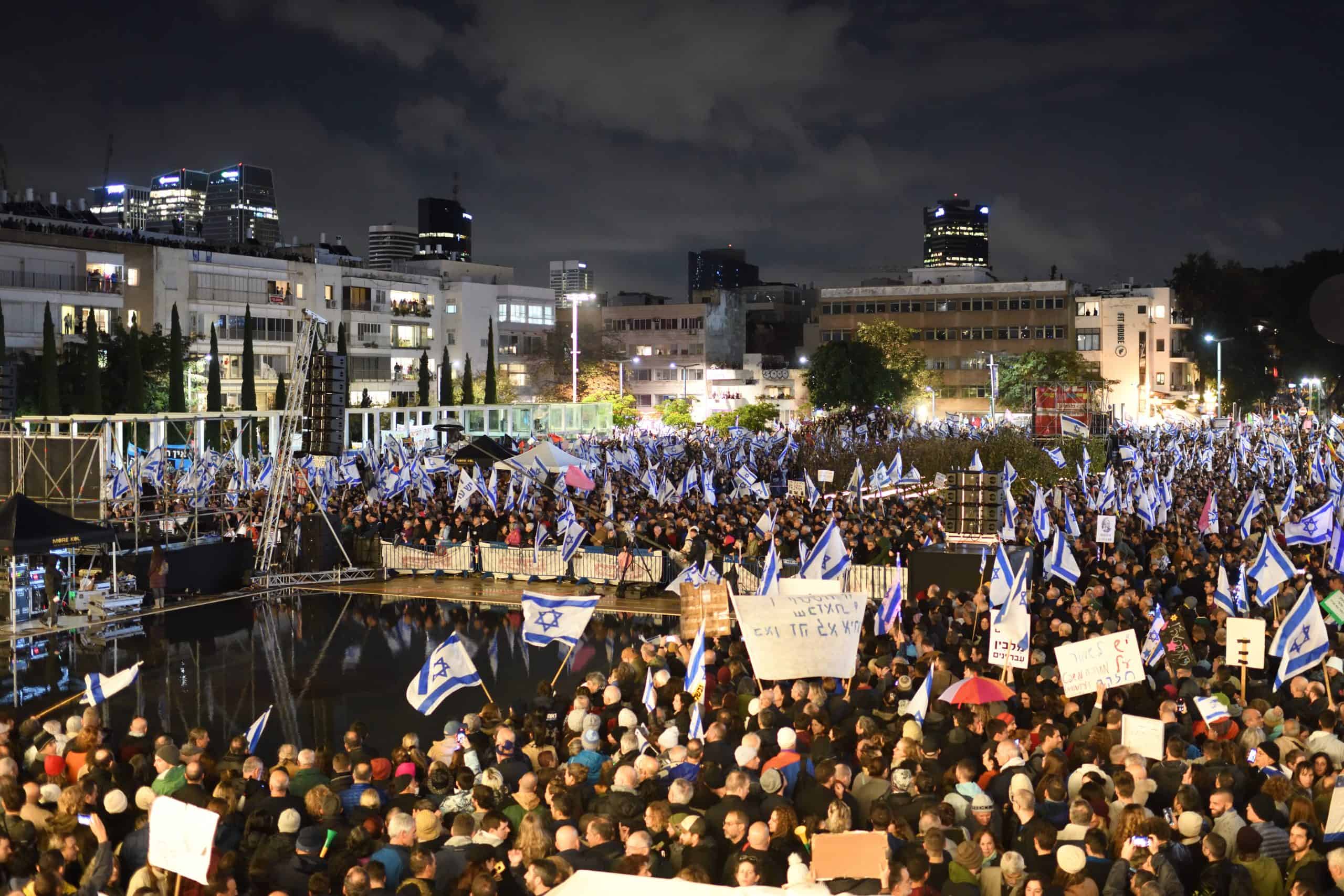
The dispute regarding the nature of Israeli democracy and the necessary balance between the three branches of government has been sharpened. Demonstration of 80,000 people in Tel Aviv, January 14, 2023
Photo: Gili Yaari/NurPhoto
This situation has magnified the dispute regarding the nature of Israeli democracy and the necessary balance between the three branches of government – executive, legislative, and judicial – and concern has arisen that this vital balance will be upset. This is also the case regarding necessary reforms in the judiciary as well as the law enforcement system, which could lead to the undermining of the independence of the legal advisors in the government ministries and other gatekeepers, thus impacting the rule of law in the country in general. This concern is intensified by declarations of intent by some of the senior members of the incoming coalition, in part against the backdrop of increased feelings of a lack of personal security among the public, which many sense (36.3 percent, according to the INSS poll) as the most serious internal threat, alongside the cost of living and housing.
Moreover, the participation of an Arab party in the coalition following the elections to the 24th Knesset, for the first time in the country’s history, did not lead to an atmosphere of change and reconciliation. On the contrary – the hostility between Jews and Arabs again stood at the center of the most recent election campaign, like other issues that bespeak identity, cultural, or political divisions.
These developments have a negative impact on Israeli democracy. Many citizens are alienated from the political system, which they feel does not represent them, as it does not seem to deal with fundamental civilian problems as they see them. As a result, public confidence in the state’s institutions, which is a prerequisite for effective operation of essential government bodies, continues to diminish. The concern for Israeli democracy is expands further alongside the erosion of the global liberal order and the rise of ultra-nationalism in Western countries.
The possible harm to the foundations of the democratic regime could lead to a worsening of internal relations in Israel, including in the context of Arab-Jewish domestic relations. This in turn might project outward on relations with the Palestinians and foreign relations in general, and with the US in particular.
Civilian Preparedness for Emergencies and Disruptions to Public Order
The State of Israel is inadequately prepared for natural and man-made threats. In the military sphere, especially in a possible conflict with Hezbollah and to a lesser extent with Hamas, where the civilian home front – population centers and critical infrastructure – is expected to sustain unprecedented heavy and prolonged assaults, possibly for many weeks, due to attacks with different high trajectory weapons, some of them precise and heavy. While the early warning capacity has improved in recent years, the air defense system will have difficulty coping with a severe prolonged threat; in addition, civilian sheltering and protection is insufficient, hence the number of casualties could be high, and serious disruptions to daily routine and to the economy are expected. Such circumstances will pose a challenge to national resilience.
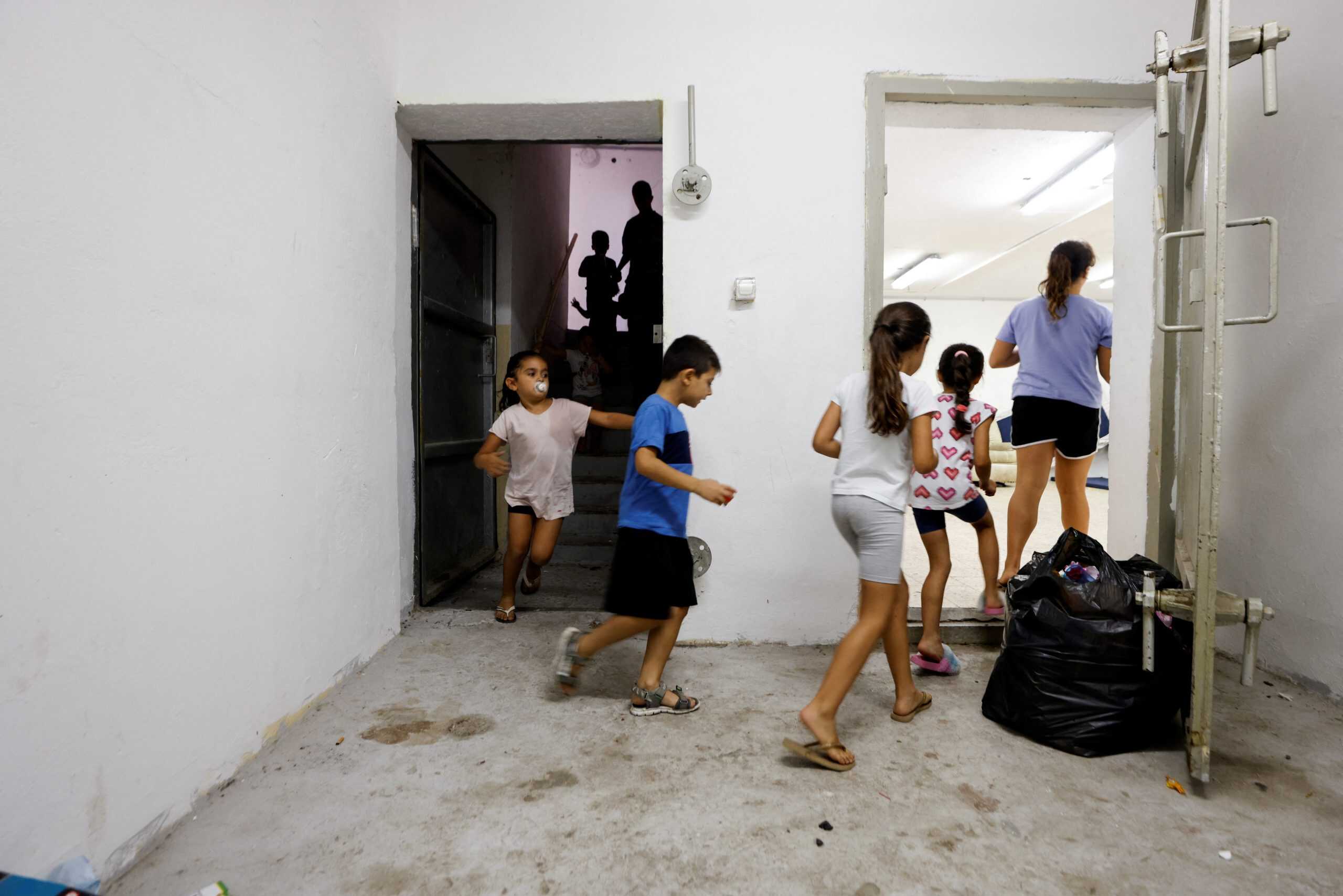
The civilian home front is expected to sustain unprecedented heavy and prolonged assaults. Children running to a shelter in Ashkelon during Operation Breaking Dawn, August 2022
Photo: REUTERS/Amir Cohen
Accordingly, much is needed to improve preparedness, both in the “hard” realms of defense and protection, and in the “soft” domains of civilian resilience and endurance under fire. A successful model has been built and tested over the years in the Gaza envelope communities, but it is almost completely absent in the other regions that are expected to be affected.
The level of civilian preparedness is much lower when it comes to natural disasters scenarios, especially severe earthquakes. Recent progress has been noted for short-term advance warning, with the operational completion of the truah system. However, the heavy damage expected would create a catastrophe of historic proportions; recovery from this crisis would be lengthy and have far-reaching consequences for national security.
In addition, readiness for contending with widespread riots on the part of extreme radical elements, especially those of an ultra-nationalist nature in the Arab and Jewish communities, is far from sufficient. The Israel Police is neither strong enough nor sufficiently prepared to reasonably cope with its broad range of essential tasks in regular times. A broad paradigm shift is needed in the police force and other law enforcement agencies, for them to be ready for their routine missions and for coping with crises.
Arabs and Jews in Israel
The problematic relations between the Jewish majority and the Arab minority constitute the most acute internal challenge that requires urgent, in-depth systemic treatment. The riots in Israeli cities in May 2021 (during Operation Guardian of the Walls against Hamas in the Gaza Strip) illustrated the severity and centrality of this challenge and created a new and threatening conceptual reference framework. Israel Security Agency (ISA) head Ronen Bar said (September 11, 2022):
A recurrence of the events of Guardian of the Walls could cause irreparable damage…the Arab community is in a process of integration. Most Israeli Arabs are normative citizens who enrich the country, provide it with more diversity, and prefer integration…[However] the sector suffers from criminal organizations and the Bedouins also suffer…from additional problems. Here too, social media intensify the [social] challenge, which, against the backdrop of the incitement, quickly becomes a security challenge. We must assume that the possibility of a violent outbreak in the Arab and mixed cities exists. The more the [religious] incitement surrounding al-Aqsa increases, the greater this likelihood will be.
For the most part, the Arab community remains interested in integrating in Israeli society in the framework of shared and equal citizenship. At the same time, the sense of disappointment and frustration with the outcome of the historic attempt to include an Arab party in the governing coalition is increasing. The hope that the legitimacy and value of the Arab vote would be recognized, which in turn would accelerate the process of integration and creation of a shared society, faded with the rise of anti-Arab trends in Jewish society. This occurred against the backdrop of the Arab List’s entry into the government and the assertions that this posed a threat to the country’s Jewish character. Consequently, the results of the elections to the 25th Knesset indicated contradictory trends among Arabs, between integration and separation, but in any case, affected the positive trend of political integration.
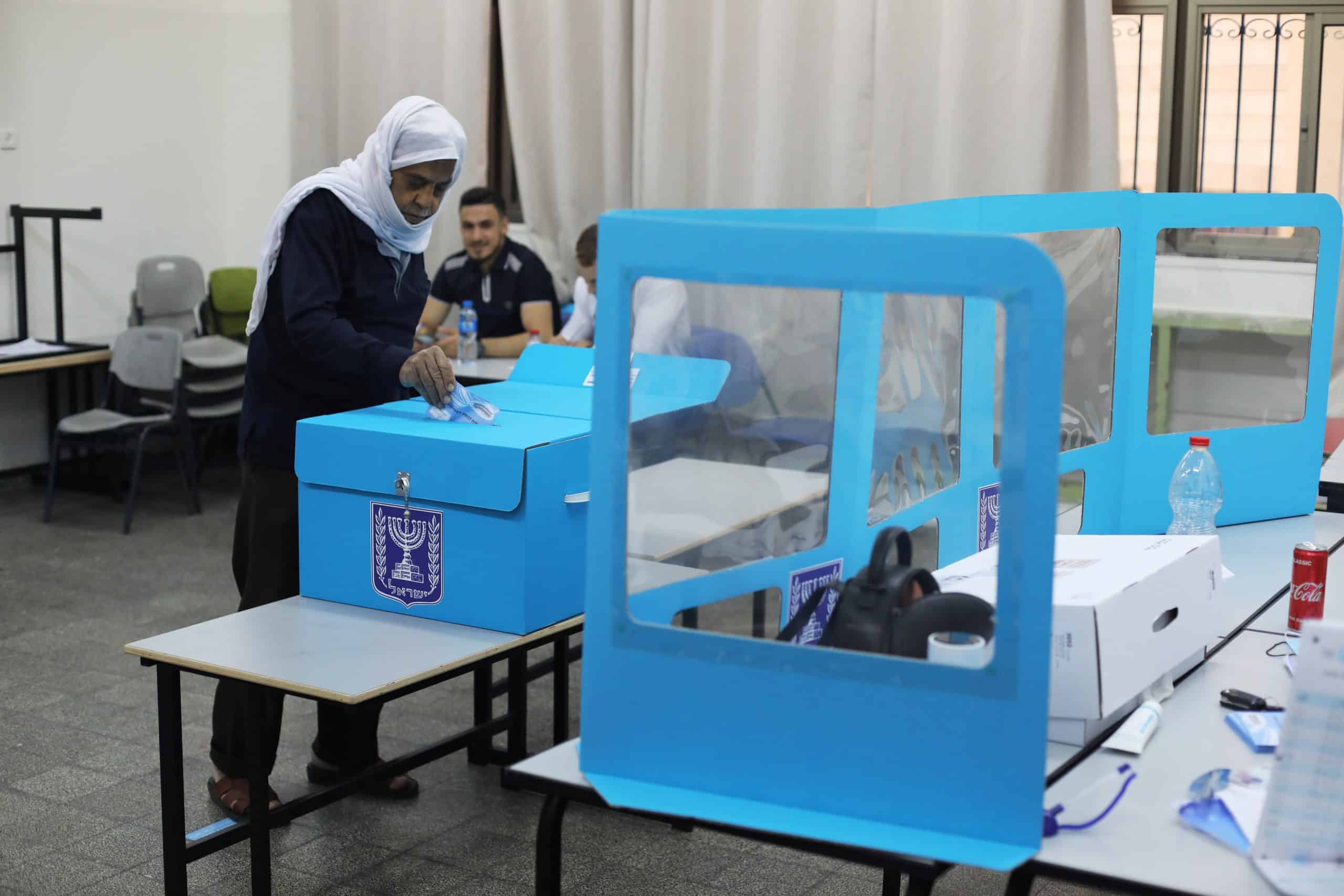
The Arab community remains interested in integrating in Israeli society in the framework of shared and equal citizenship. Voting in the Israeli elections in Kafr Manda, in northern Israel
Photo: REUTERS/Ammar Awad
The slow implementation of the five-year plans for the development and advancement of the Arab community, including the latest, well-funded plan (No. 550 from October 2021); the fear of their continuation under the new government, which includes considerable representation of extreme-right wing parties, alongside the lack of representation of Arab parties; the difficulties in curbing crime and violence within the Arab community; the resonant narrative of the “failure of the experiment” of partnership with Arab party in the coalition; and the internal division within Arab politics, which harms the representation of the Arab community in the Knesset, all cultivate a severe crisis of expectations and a lack of Arab trust in the state. This could encourage extreme and even separatist trends and prevent the critical needed development of a functioning multi-sectoral Israeli society with a shared civic identity.
Israel is at a decisive juncture regarding this sensitive issue. The current circumstances could strengthen severe negative trends in the Arab community’s relations with the state and with the Jewish community. Extremist elements in both communities could translate their mutual hostility into violent ultra-nationalist rhetoric, grounded in hate, bullying, and racism. This could quickly deteriorate to the point of large-scale friction and confrontations, especially against the backdrop of violent incidents in the West Bank, East Jerusalem, and the holy sites. This can evolve particularly if the police do not manage to deter, warn of, and suppress agitation quickly and effectively.
Such developments portend ominously for Israeli society. They could harm the advancement and integration of Arabs in the life of Israel’s society, economy, and politics, based on full and equal citizenship. This is an interest of the utmost national importance to Israel’s societal, economic, governmental, and moral resilience.
Therefore, it is necessary to internalize the fact that most of the Arab population and its national and local leadership are interested in cooperating with the state and integrating within it, in order to bring about the advancement of the Arab community, stop the wave of violence and crime within it, and hasten its growth. The government should strengthen this important positive trend. Thus, a clear policy should be adopted to promote the inclusion and equal social and political mobility of Israel’s Arab citizens in all areas of life. This policy requires determined optimization, acceleration, and advancement of the implementation of the various five-year plans, primarily the plans to reduce violence and crime, with maximum cooperation with the leadership and representatives of Arab civil society.
The Economic Situation
Over the past year, the Israeli economy has shown impressive macroeconomic strength, given the shocks suffered by the global economy. The Israeli economy continued the positive trend that accompanied the fast recovery from the COVID-19 crisis. The state’s tax revenue is expected to be 10 percent higher than early forecasts, at NIS 456 billion; exports are expected to grow by 15 percent to $165 billion, led by the hi-tech industry – the engine responsible for half of exports; and the debt-to-GDP is forecasted to shrink to 65 percent by the end of the year.
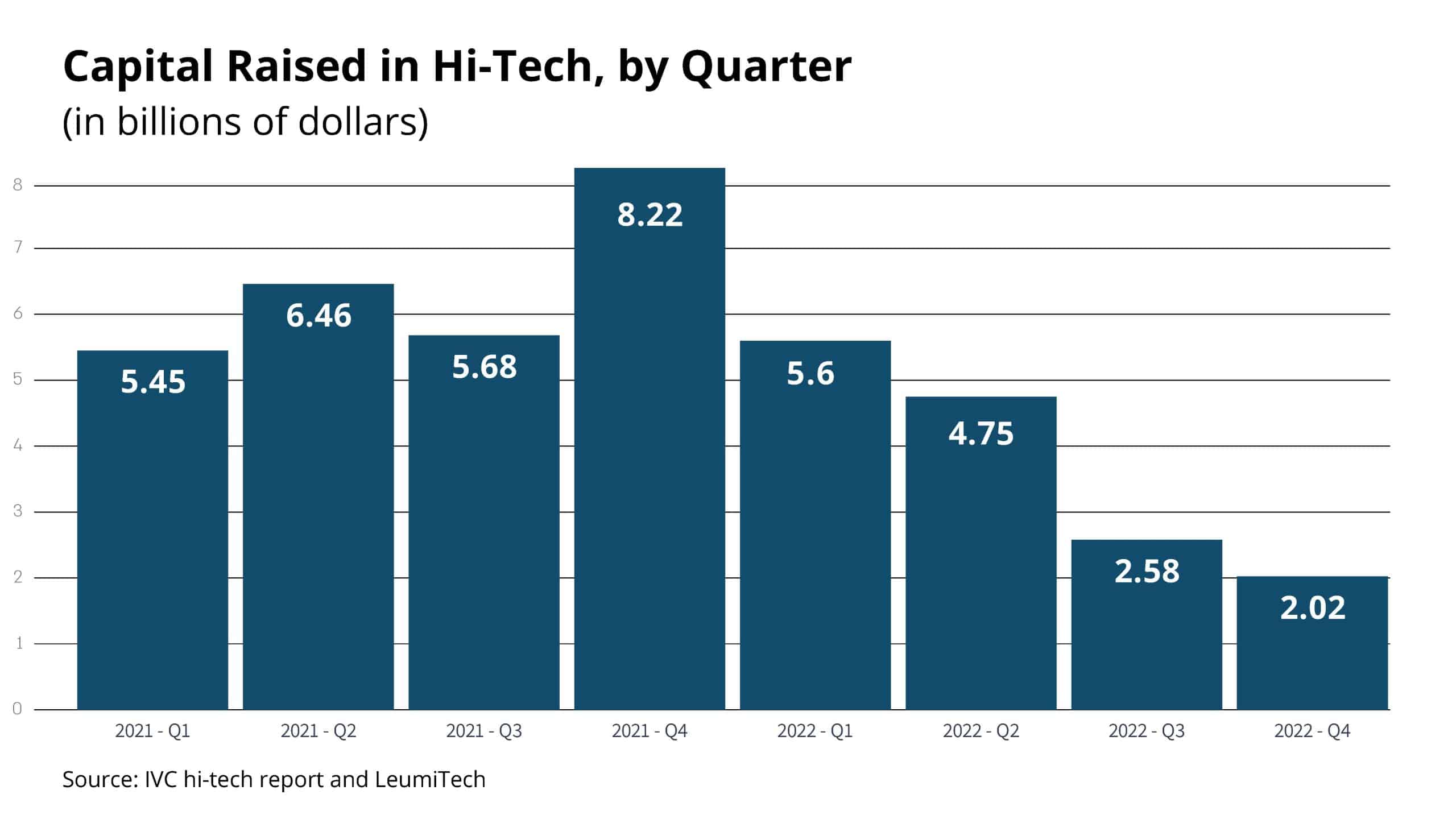
The economy has likewise demonstrated stamina and stability in relation to the global economy, which is affected, inter alia, by the Russia-Ukraine war, supply-chain problems, as inflation’s return to center stage after a 35-year absence. These also affect the Israeli economy, but at a lower intensity than other developed countries. The upheaval in the world’s markets has forced the Bank of Israel to gradually raise the interest rate from near zero to 3.75 percent. Nonetheless, the annual inflation forecast, which stands at about 4.5 percent, is significantly lower than that recorded in the OECD countries. This is due to moderating factors, including the reliance on local natural gas, which neutralizes the impact of the war in Ukraine, and the strength of the shekel, which lowers import costs. Israel’s economy has earned praise from international economic organizations and the year is expected to end with an impressive growth rate of 5.5 percent.
Looking toward 2023: The bleak forecasts for the global economy are also expected to affect Israel, though probably to a lesser extent than other developed countries, as presented in the Bank of Israel’s macroeconomic forecasts. The GDP is expected to grow by 3 percent, while the unemployment rate is expected to rise to 3.5 percent, which means that the economy is expected to remain at full employment.
However, the volume of exports is expected to decline, given the forecast of a recession in Israel’s main trade destinations in Western Europe. In addition, the global slowdown is expected to affect foreign direct investment in Israel, and hence lower tax revenue. It is also possible that the political instability in the past few years in Israel, and domestic political developments, will have a negative impact on economic metrics in the coming year. A stable government that passes a state budget in spring 2023 and manages to make appropriate decisions to increase growth and economic resilience is needed to keep the economy on high grounds.
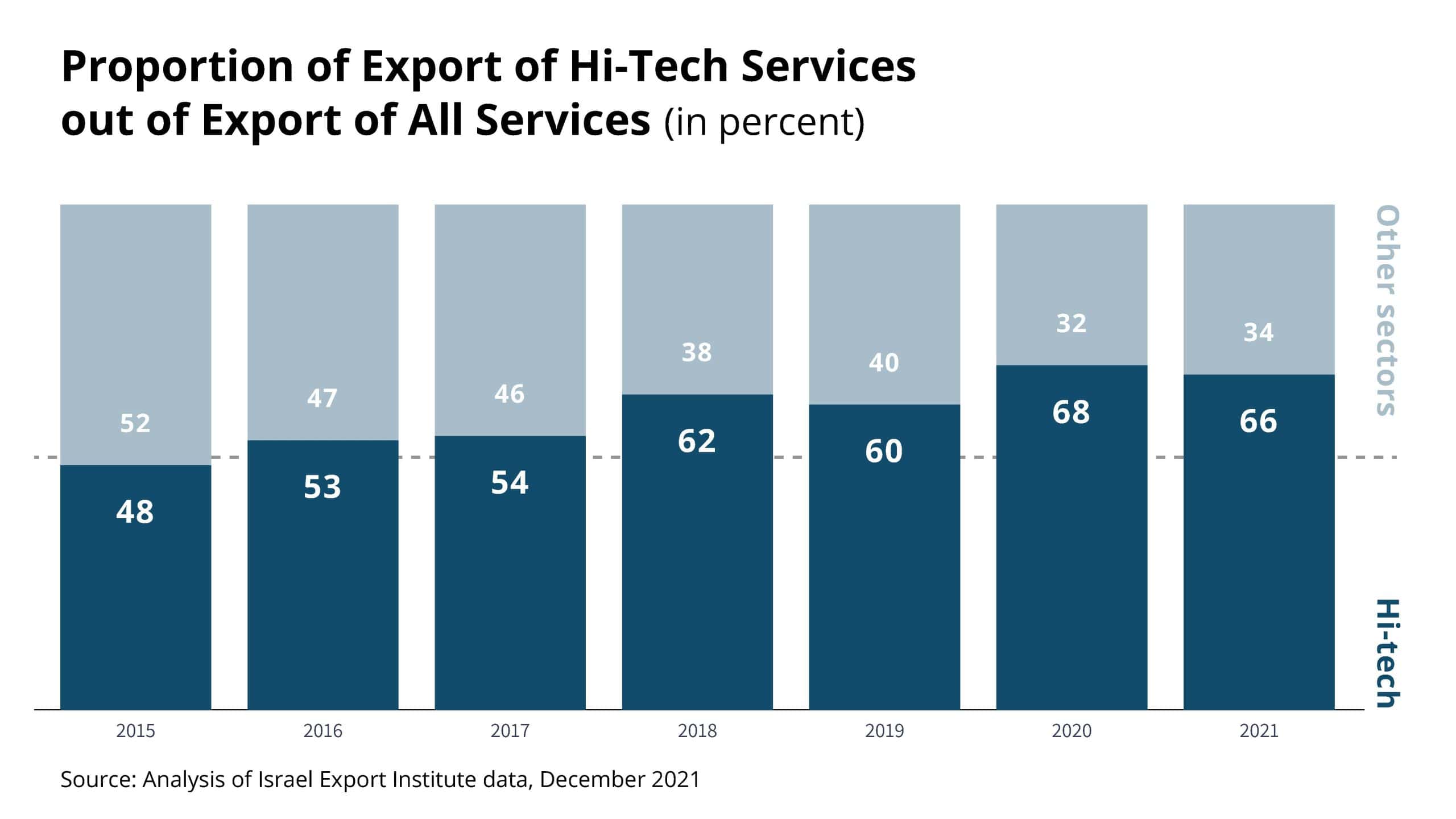
Against this backdrop, the unequal contribution of various groups to economic growth in Israel is an expected internal challenge. In recent years, while the Israeli economy has demonstrated impressive performance, not all sectors are partners in the success and many of Israel’s citizens have been left behind. This was evident during the COVID-19 crisis and following the steep rise in the cost of living in general, and the cost of housing and rent in particular. The Israeli economy is strongly based on the dominant hi-tech industry, which also helps associated industries. This, however, does not help populations that earn minimum wage, or those that are not part of the labor market and are not counted in unemployment figures. Therefore, as an overarching objective, the government should initiate a national project to integrate all populations in the economy, through programs to impart skills needed by the marketplace.
The external economic challenges could lead to an economic slowdown in the upcoming year and further harm to the weaker sectors of society. Nevertheless, the slowdown among Israel’s main trading partners does not necessarily herald a significant slowdown in exports. There are countries, including partners to the Abraham Accords, who have profited from the rise in energy prices, and they could serve as a solid alternative for Israeli exports.
Systemic Recommendations
- Establishment of a stable government that will enhance national security by strengthening elements of societal resilience and ensuring meaningful substantive democracy, while ensuring the independence and standing of the judicial system and the organs responsible for law enforcement and public order.
- Determined action to reduce mutual suspicion and hostility between the Arab minority and the Jewish majority, mainly by advancing deep processes to integrate the Arab population within the fabric of Israeli society. The five-year plans should be implemented as a moderating element vis-à-vis the Arab population, and a concerted effort made to effectively address the crime and violence in the Arab community.
- Strengthened the law enforcement agencies, and in particular the Israel Police, qualitatively and quantitatively, in a multi-year process, so that it can successfully cope with its broad range of missions.
- Continued functional capacities of the government’s ministries, especially the more sensitive ones, such as the Ministry of Defense and the Ministry of Education. In addition, a new governmental mechanism should be established, alongside the National Security Council, that would be responsible for overseeing, planning, and implementing integrative programs designed to enhance multi-dimensional processes for the internal arena. High priorities of this mechanism should be to narrow the socio-economic gaps in Israeli society and to promote necessary preparedness for coping with manmade disruptions and natural disasters.


